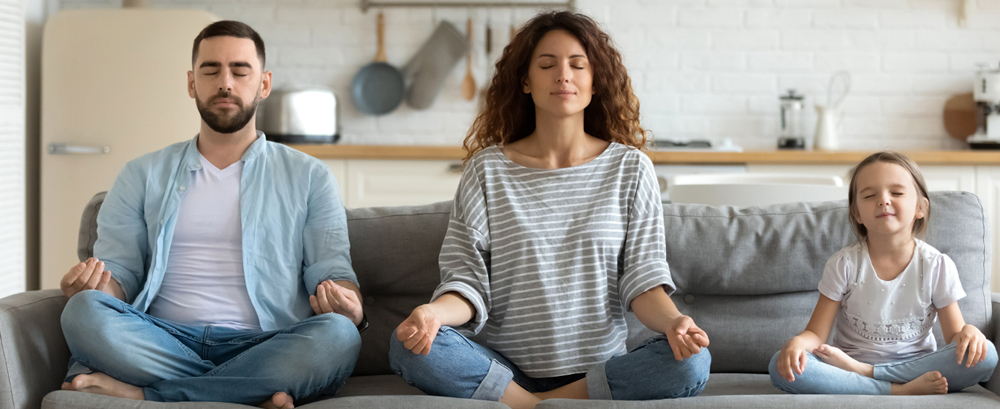
Meditation is acceptance. It is the acceptance of life within us, without us and all around us. Acceptance of life is the beginning of human satisfaction. Transformation of life is the culmination of divine satisfaction. – Sri Chinmoy
It’s easy to envy those who seem to glide through life. Maintaining such Zen-like calm might involve meditation, a practice that helps combat stress, anxiety, irritability, and over thinking. Meditation doesn’t require a significant commitment of time and energy. Your experience can be whatever you make of it. Positive Psychology has a list of recommendations about adding mediation to your daily routine. Here are five tips to get you started.
Start small
Make a daily time commitment—even three minutes is fine to begin with. If possible, be consistent with the time of day and practice location. The most common meditation posture is in a comfortable, seated position with eyes gently closed. Set a timer and turn off distractions like your phone.
Pay attention to your breathing, the air temperature on your skin, and the sounds around you. Once your mind quiets, move your attention to sensations you feel in your physical body. Start at your feet and then slowly move up toward the top of your head.
Understand the principles of meditation
A common misconception is that meditation only works when you’re not feeling distracted. Don’t be self-critical if your mind wanders. That’s what minds do! Note when your mind drifts and gently guide your attention back to your point of focus.
Experiment until you find a practice that works for you
Your meditation can be 5 minutes before breakfast seated on your dining room floor; 10 minutes meditating on an inspirational quote you like; or 15 minutes strolling around the block tuning in to everything you see, hear, smell and feel. In other words, there is no “right” way to meditate. Trust whatever feels comfortable for you.
Make use of available tools
Take advantage of the many instructional guides, as well as books, podcasts, and websites that describe the benefits of deep meditative states. Beginners may enjoy John Kabat-Zinn’s Wherever You Go, There You Are or the free, 21-day meditation challenge hosted by Oprah and Deepak Chopra.
Don’t stress
This is a tricky, yet crucial, step. No matter what happens during your meditation practice, don’t let worry enter your mind. If you feel nervous or agitated, don’t beat yourself up about it. Instead, try to find a solution to reduce anxiety and agitation. Let your body and mind adapt to quiet and peace. When meditating, it’s important to acknowledge that you are simply doing the best you can at any given moment.


